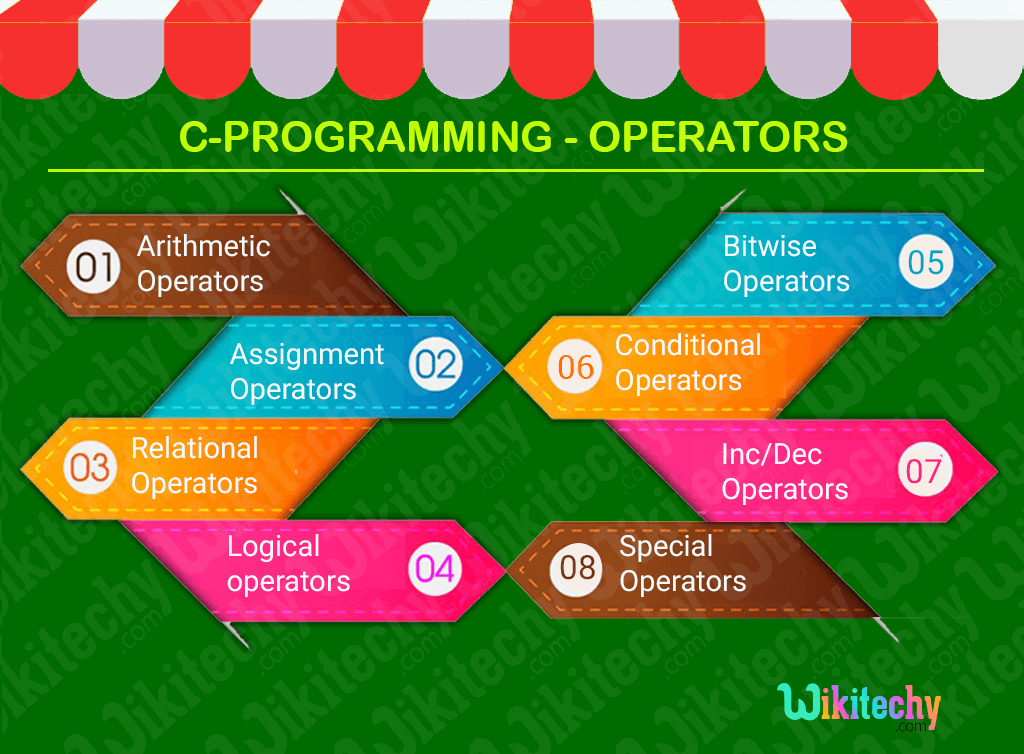C - Operator
C - Operator - Definition and Usage
- In C-Programming the symbols are used for logical and mathematical operations called as operators in C.
- Types of operators in C-programming :

Arithmetic operators :
- In C-Programming the Arithmetic operators are used to perform mathematical calculations such as
- Addition(+),
- Subtraction(-),
- Multiplication(*),
- Division(/) and
- Modulus(%).
Assignment operators :
- In C programs, values for the variables are assigned using assignment operators (=).
Relational operators :
- Relational operators are used to find the relation between two variables, i.e. to compare the values of two variables in a C programming.
Logical operators :
- These operators are used to perform logical operations on the given expressions.
- There are three logical operators in C language. They are,
- logical AND (&&),
- logical OR (||) and
- logical NOT (!)
Bitwise operators :
- These operators are used to perform bit operations.
- Decimal values are converted into binary values which are the sequence of bits and bit wise operators work on these bits.
- Bit wise operators in C programming are as follows:
- & (bitwise AND),
- | (bitwise OR),
- ~ (bitwise NOT),
- ^ (XOR),
- << (left shift) and
- >> (right shift).
Conditional operator :
- Conditional operators return one value if condition is true and returns another value is condition is false.
- Conditional operators is also known as ternary operator represented by the symbol “ ? :” (question mark).
C Syntax
(Condition? true_value: false_value);Increment/decrement Operator :
- In C- Programming Increment operators (++) is used to increase the value of the variable by one.
- In C- Programming decrement operators (--) is used to decrease the value of the variable by one.
C Syntax
Increment operator: ++var_name; (or) var_name++;
Decrement operator: – -var_name; (or) var_name – -;Special Operator :
- In c-program some of the operators are used as Special operators they are
- & - operator is used to get the address of the variable;
- * - operator is used as pointer of the variable.
- sizeof() - operator is used to define the size of the variable.
